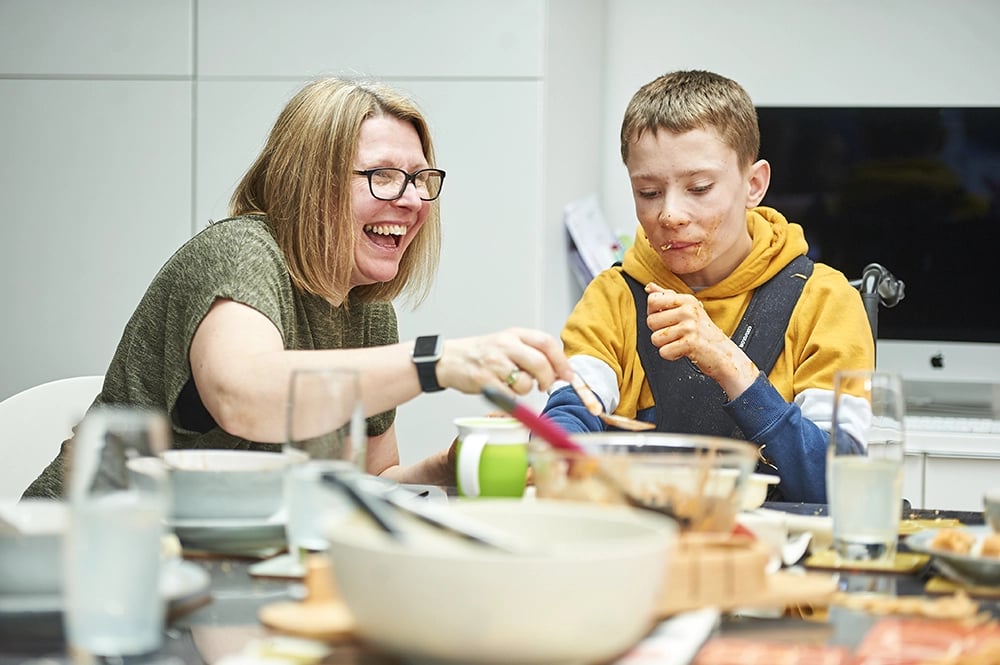The difficulty of saying goodbye
Carmelah talks to her children about how there are other children who cannot live with their mummy and daddy for a time, so they have come to live with them.
Both families feel that one of the biggest difficulties for their own children is having to say goodbye. “When our foster children leave, they can’t always stay in touch with us, and this is difficult for the children,” says Carmelah. “One of our foster daughters was adopted and we see her regularly, which is wonderful. We have been able to keep the relationship going and to see her growing up.”
Millie remembers a strong sense of loss when the family’s first foster child left after five years. “Even though I was very young I can remember how we used to play and spend time together. But I had my mum and dad and my older sister, and they helped me to understand why it was time for them to move on.”
Karen and Steve waited until their son Josh was 18 before fostering. They had talked about fostering, as a family, for a number of years before putting themselves forward to foster for Tameside Council when they felt they were all ready. “This was a discussion we had over a long period of time,” says Steve. Josh describes it as ‘a five year decision.’
When they applied to foster, Josh also attended the Skills to Foster course with his parents. “Fostering is a massive change in your life and I felt that we all needed to be as well-prepared as we possibly could be,” Josh says. After fostering for six years, the family still believe that they took the right decision to wait. “Without a doubt, it was the right time for us to foster,” says Karen.
Helping children grow
Josh now lives with his girlfriend and they have a child of their own. He feels that the experience of fostering has been beneficial to him as a young adult. “You learn so much about life and how to respond to the challenges you face.” He has enjoyed being able to support his parents and to be part of the lives of the children who have come to live with his family.
Pam and her husband Robert have been fostering with Stockport Council for 10 years. Their son Oliver, now 15, has cerebral palsy and epilepsy, and uses a wheelchair. Over the past decade, Pam’s family have welcomed many children and young people into their home, as well as providing regular support to other carers.

“Oliver was five when we started fostering,” recalls Pam. “The first child who came to live with us was two and it was through their friendship that Oliver learned how to play. She’s 11 now and they are still really good friends.”
Pam has used the knowledge and skills she has acquired through Oliver’s care to help other children with additional needs. She also believes that children and young people have benefited through their positive relationship with Oliver. “Children learn to accept that we are all different and become sensitive to other people’s needs.”
The contribution that sons and daughters make to fostering is recognised during the Fostering Network’s Sons and Daughters Month every October. Fostering services across the UK run events and activities to thank them for welcoming children into their families, and for making them feel happier, safer and loved.



.webp)





